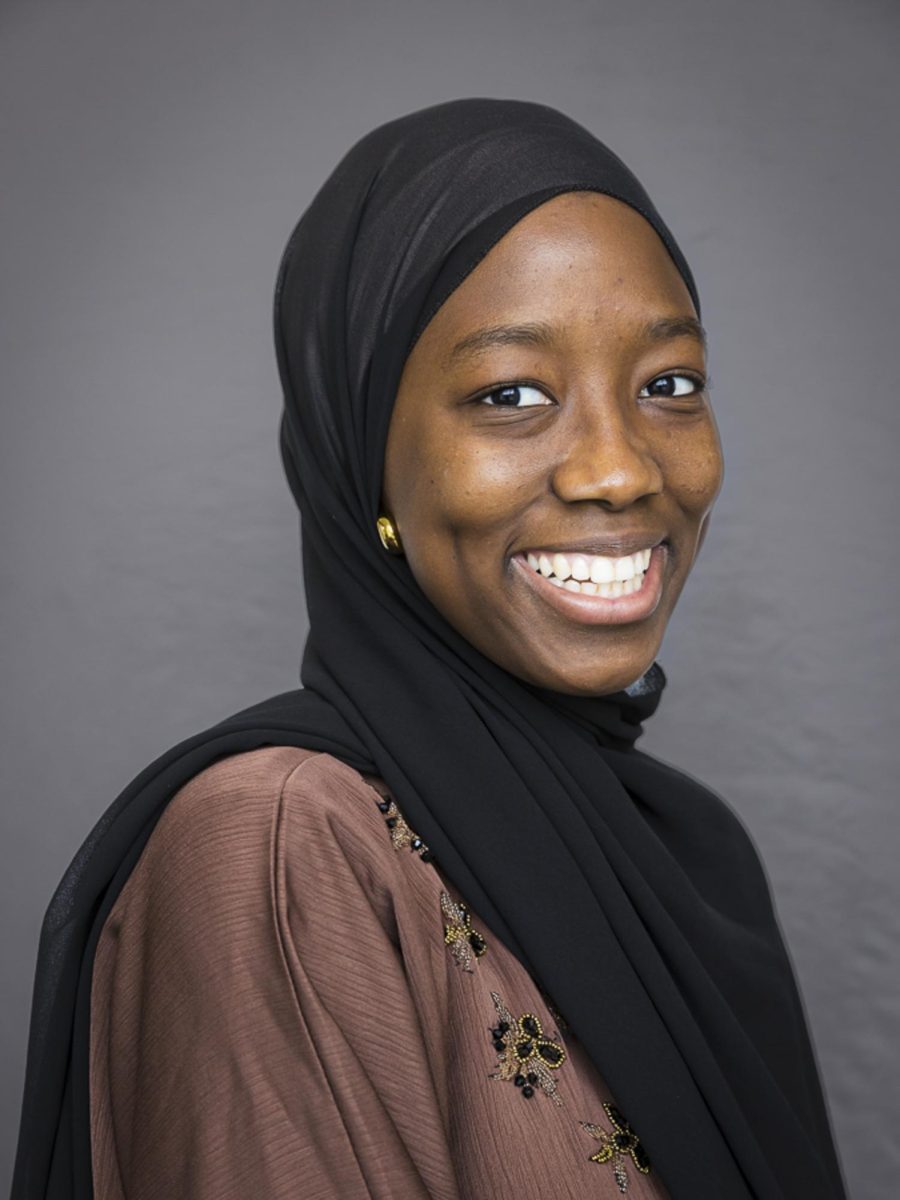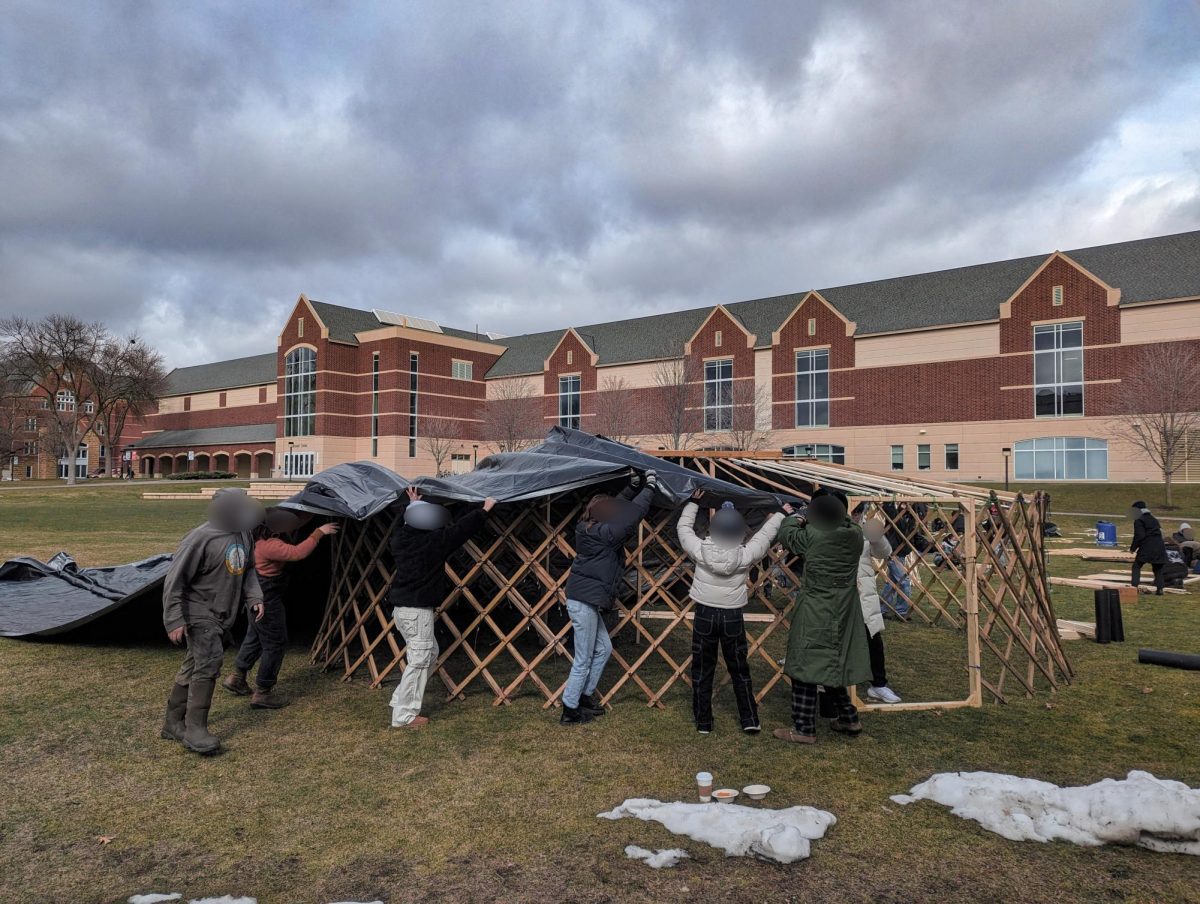
During the question and answer session that followed King’s speech, several black students challenged King, asking, “Who is this speech for?” They asserted that King’s speech used traumatic videos of violence against black people in order to prove his point to white and non-black students.
Organizers of the Urban Studies Colloquium brought King to campus originally to participate in this year’s panel, “Geographies of Protest,” which took place immediately following his speech. When first announced, King’s speech was open to the public, but due to an overwhelming amount of interest and space limitations in Kagin, the event was open to only Macalester students and faculty. King then scheduled and spoke at an event later that night at North Minneapolis High School. The Community Chest Fund and the President’s Discretionary Fund paid for King’s visit to campus.
Following introductions from event organizer Jake Meltzer ’17 and MCSG President Merrit Stüven ’17, King took the stage, expressing concern about the state of the country.
“There’s a huge part of the country that thinks we’re in a problematic place, but [doesn’t] know how to explain how we got here,” King said. King thinks one explanation can be found in the ideas of 19th century German historian Leopold Von Ranke.
Von Ranke created an overarching timeline of human history to question the common assumption that human beings are becoming more moral. As King said, “There’s something in all of us that wants to believe that’s true.” King cited Von Ranke’s theory that “humanity does not look like a steady rise, but like a series of peaks and valleys.”
King stated that people have throughout history mistaken technological progress for moral progress. He then questioned how the theory of gradual improvement could explain the Trans-Atlantic slave trade or 20th Century genocides.
King then transitioned into speaking about police violence and mass incarceration. He stated, “The system is not broken, it is functioning exactly the way it was designed to function.” He showed a number of video clips, including a white police officer assaulting a female black teen in McKinney, Texas and multiple black people being assaulted at Trump rallies.
“Right now we find ourselves in a historic dip in the quality of humanity,” King said. He argued that dips typically follow “innovations” in morality, as the rise of the KKK and lynching followed Emancipation in 1865. Trump’s election, King claimed, followed the innovation that was the nation’s election of its first black president.
During the question and answer session, Kava Garcia Vasquez ’17 began, “I want to reclaim this space and re-center blackness.” Vasquez approached the microphone with a number of students who asked that King speak directly to the black members of the audience who are already aware of the trauma which was the subject of King’s speech, and questioned the purpose of the videos depicting violence against black people.
“The reality was that for him showing those images was an effort to humanize those numbers, but what I saw on that screen was my body, and the body of my sisters and my family being thrown around,” Vasquez told The Mac Weekly. “It felt like yet another one of these conversations where POC are expected to teach white students or students that don’t know,” she continued.
Vasquez said she understood why King would use such videos as a tool for engaging students who may not have a personal stake in this violence. “He said some important stuff, like it’s difficult to know where you are in the scheme of history,” she added. Nevertheless, Vasquez said the talk reflected the “hamster wheel” in which Macalester students often find themselves caught: “We think we’re moving forward, but we’re really just expending energy running in circles talking about privilege and always recentering whiteness,” she said.
Vasquez explained her and others’ decision to go up as a group to challenge King’s speech: “He’s a black man, he’s doing this work for us, so I’m like, ‘Alright we need to engage him,’” she said. The support and questions raised by other black students in the session, she said, “was really powerful.”
“I think a lot of people in the audience were thinking, ‘oh this is conflict,’ but no, this is what movements look like; this is what organizing looks like,” she said.
In King’s responses to the questions, he expressed understanding of their claims, and added that “the burden of fixing it [racial violence and oppression] is also put on the backs of people who are experiencing it. And it doesn’t work like that.” King continued, “If you are going to be part of the solution, part of it is enduring a lot of awkward moments, hearing something that hurts and not saying, ‘I’m done.’”
Vasquez said that she hopes the work of her and her fellow students during the question and answer session resonates with the audience. “That’s why I did what I did today, because if I don’t say anything, people just walk out thinking that that talk was enough, that it’s enough to engage in anti-racist work once a week and then boom the work is done. It’s a continual process,” she said.














Megan Russell • Sep 11, 2019 at 2:17 pm
Assisted me a lot, just what I was looking for : D.
Andrew Walsh • Sep 10, 2019 at 8:38 am
I have read so many articles about the blogger lovers except this paragraph is really a good article, keep it up.
Michelle Tucker • Sep 7, 2019 at 9:14 pm
Somebody essentially help to make seriously posts I would state. This is the first time I frequented your website page and thus far? I surprised with the research you made to make this particular publish amazing. Wonderful job!